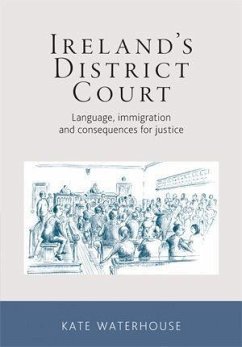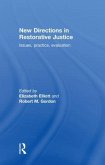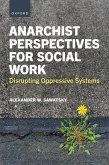This book demystifies the Irish District Court and brings its criminal proceedings to life, examining the characteristics of the court as an institution, dissecting the procedure and discourse of its heavy workload, and capturing an important change in the District Court in recent years: the advent of the immigrant or the limited English proficient (LEP) defendant. Using original extracts from hundreds of actual District Court cases, it makes sense of the incomprehensible, organised chaos that characterises the court, describing the language of court participants and breaking down the generic criminal case into its constituent parts to understand how cases are processed. It then traces the rise of the limited English proficient defendant and the development of language services in Irish courts, and analyses issues of language and access to justice in terms of the interpreting process and the right to an interpreter. Based on observation of over 370 LEP cases and interviews with interpreters and legal professionals, a detailed account is then provided of the LEP defendant in District Court proceedings, looking at how LEP cases proceed and how interpreters work in practice, as well as how interpreting impacts on and is influenced by the characteristics and dynamics of District Court proceedings. This book will appeal to anybody with an interest in criminal process, including undergraduate and postgraduate students, researchers and lecturers in criminal law, criminal justice and social policy. It will also be of interest to students and scholars of language, sociolinguistics or interpreting and translation studies, and anyone with an interest in community or court interpreting. The book provides valuable practical insights for future criminal practitioners, current practitioners with limited English proficient clientele, and interpreters in the District Court.
Hinweis: Dieser Artikel kann nur an eine deutsche Lieferadresse ausgeliefert werden.
Hinweis: Dieser Artikel kann nur an eine deutsche Lieferadresse ausgeliefert werden.








